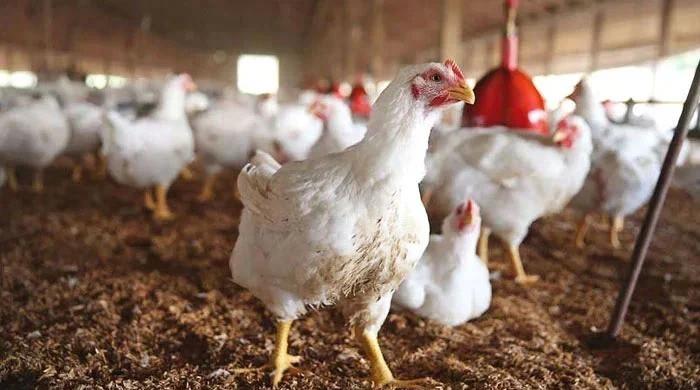Faisalabad: In a great advance for the country’s poultry sector, scientists from the University of Agriculture Faisalabad (UAF) have developed a new chicken race capable of putting more than 200 eggs annually, almost three times the performance of conventional indigenous chickens.
Innovation, financed by the Agricultural Research Board of Punjab (Parb), marks a significant step to reduce the dependence of imported poultry races and promote sustainable rural livelihoods.
According to the Institute of Animal Sciences of the UAF, UNIGOLD adapts to the poultry production of the backyard and performs well under low to medium input common entry in the center and south of Punjab. It has a low feeder load and, therefore, tolerates heat stress.
Two different strains, full neck and naked neck have been created, to adapt to rural conditions, both exhibit a strong adaptability to local climates and feeding conditions.
The UNIGOLD breed surpasses traditional indigenous chickens in productivity. While native chickens generally put only 70–80 eggs a year, UNIGOLD chickens can produce between 179 and 212 eggs per year, with an average egg weight of approximately 52 grams, a 25% increase over indigenous counterparts.
The data of the Poultros Research Institute show that the Gallins of Unigold reach the maturity of the placement at 25–26 weeks, with gallla day production rates of up to 83.2% at 32 weeks of age. In addition, the robust resistance of the heat stress and the lowest feeding requirements make it especially valuable for the regions vulnerable to climate change.
The development of UNIGOLD also addresses a long -standing gap in the Pakistan poultry sector.
Despite the scale of the sector, secondly only to textiles, it depends largely on the stocks of imported parents for layers and fattening chickens. The introduction of UNIGOLD offers a local alternative that preserves genetic resources while improving rural income and food security.
Rural birds, which contribute to 36% of the total production of Pakistan eggs, play a fundamental role in the empowerment of women and guarantee nutrition at home level.
The success of UNIGOLD is expected to benefit farmers and rural families without land, helping to relieve poverty and reduce dependence on imported breeds such as Fayoumi and Rhode Island Red.
UAF plans to expand production through the anticipated establishment of an indigenous chicken research and development center, which will facilitate the distribution of the UNIGOLD race to the Farmers of Pakistan.




